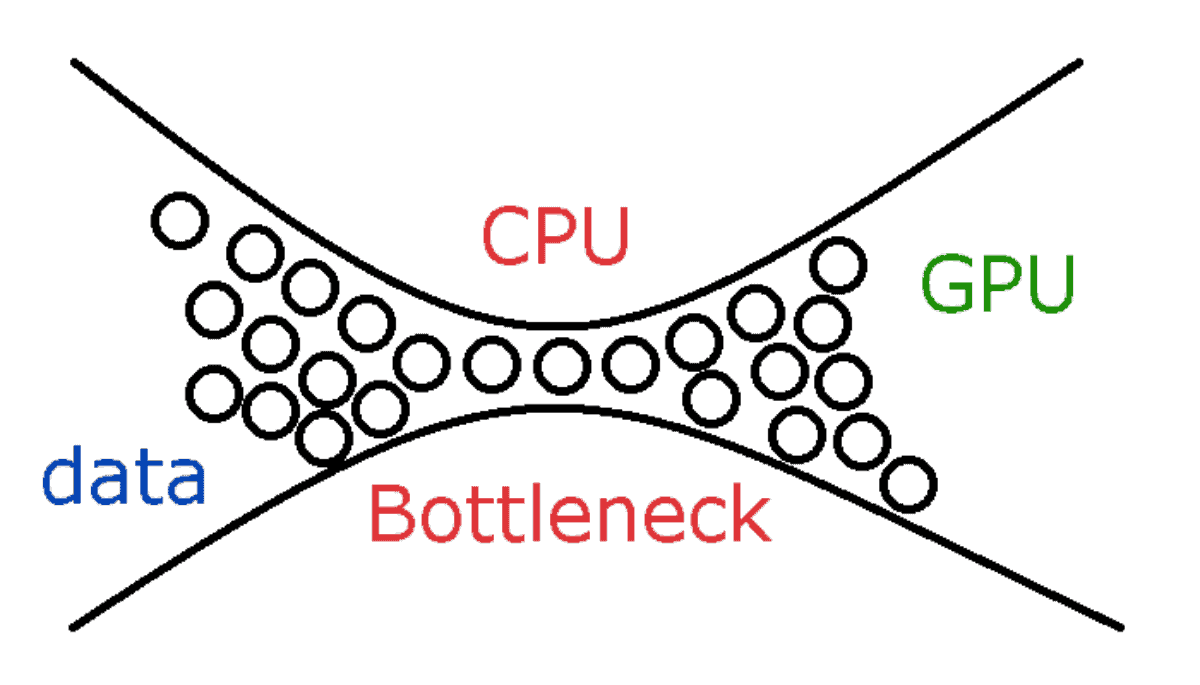
Ever feel like your computer is stuck in slow motion? Like it used to be a cheetah and now it’s a sluggish sloth? That might be because one part of your computer is bottlenecking the others, holding everything back.
Imagine a traffic jam on a highway. If one lane is super slow but all the others are clear, that slow lane creates a bottleneck for the entire highway. That’s kind of what happens inside your computer when one part is outdated or weaker than the others.
How to Find the Culprit?
To identify the bottleneck in your computer, you can check how hard your components are working. This is where a bottleneck calculator comes in. Think of it as a detective for your computer!
PC Built Bottleneck Calculator
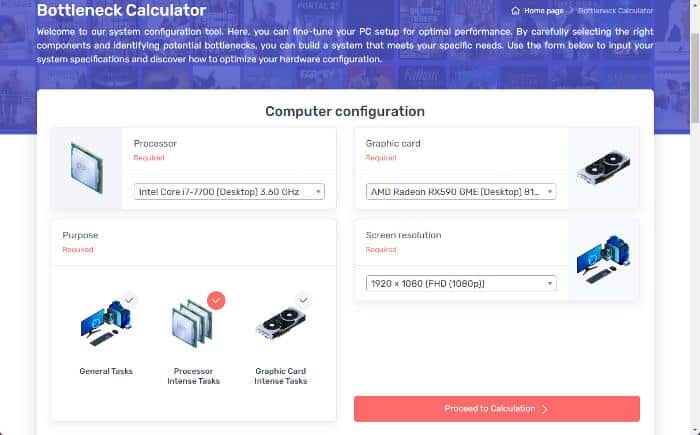
It is like your personal PC pit crew chief! It helps you avoid building a computer that’s all looks and no muscle.
Here’s how it works:
Imagine you’re picking parts for your dream PC. This calculator asks you about the processor (the brain), graphics card (the artist), screen resolution (how sharp the picture is), and what you’ll be using the computer for (gaming, video editing, everyday tasks).
Once you enter this info, the calculator goes to work. It checks to see if all these parts will work together smoothly.
If it spots a bottleneck (a part that might slow everything down), the calculator doesn’t just tell you there’s a problem. It actually suggests other parts you could use instead, parts that would give you the performance you crave without any slowdowns.
CPU Agent Bottleneck Calculator
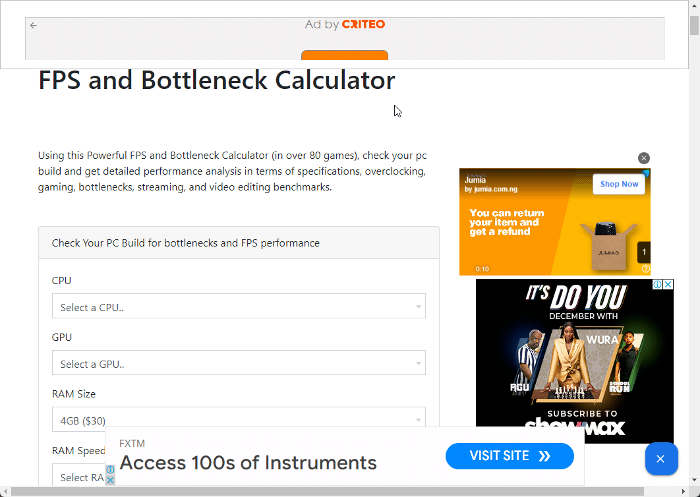
Think of it like a compatibility checker for your PC parts. It’s got a huge list of components, so you can enter the exact CPU, graphics card (GPU), RAM, and other goodies you’re thinking of using. Bonus points for the calculator – it even shows you the prices!
Once you enter your dream PC parts, the calculator does two cool things:
Performance Check: It gives you a detailed breakdown of how all the parts will perform together.
Bottleneck Buster: It shows you how much each component will be used when running different games (think of it like a stress test). This helps you see if one part might be a bottleneck, slowing everything else down.
By using the CPU Agent Bottleneck Calculator, you can avoid building a PC that’s unbalanced, ensuring all your parts work together seamlessly for a smooth gaming (or whatever you use your PC for) experience!
Build Redux

Build Redux isn’t just another fancy PC maker – they actually specialize in helping you choose the right parts to avoid bottlenecks. Imagine bottlenecks like traffic jams for your computer – one slow part can grind everything else to a halt. No fun!
Here’s what Build Redux can do for you:
Pick Your PC’s Passion: Tell them what you’ll be using your PC for, whether it’s conquering the latest games or editing epic videos.
Smart Parts Matching: Based on your needs, Build Redux will recommend compatible components that work together perfectly. No more mismatched parts creating bottlenecks and slowing you down!
While Build Redux is particularly fond of gamers, their tips can be useful for anyone building a PC for demanding tasks. So, ditch the confusion and let Build Redux help you design a balanced, bottleneck-free PC that tackles anything you throw at it!
Techwafer Bottleneck Calculator

This handy tool uses some serious tech magic (aka an advanced algorithm) to predict if a specific CPU (computer’s brain) and GPU (graphics card) combo will create a bottleneck. Think of a bottleneck like a traffic jam on a highway – one slow part can hold everything else back.
Techwafer Bottleneck Calculator is super easy to use:
Pick the CPU and GPU you’re thinking about. They have a huge selection, so you’ll most likely find them on the list.
Let the calculator work its magic! It will give you a score that shows how well these two parts will work together. A high score means smooth sailing, while a low score indicates a potential bottleneck.
This score can be a great way to compare different hardware combinations and decide which one will give you the best performance without any slowdowns. Plus, it can help you plan future upgrades by identifying the weaker link in your current setup. So, ditch the guesswork and use Techwafer Bottleneck Calculator to build a perfectly balanced PC!
Post PC build Bottleneck Calculators
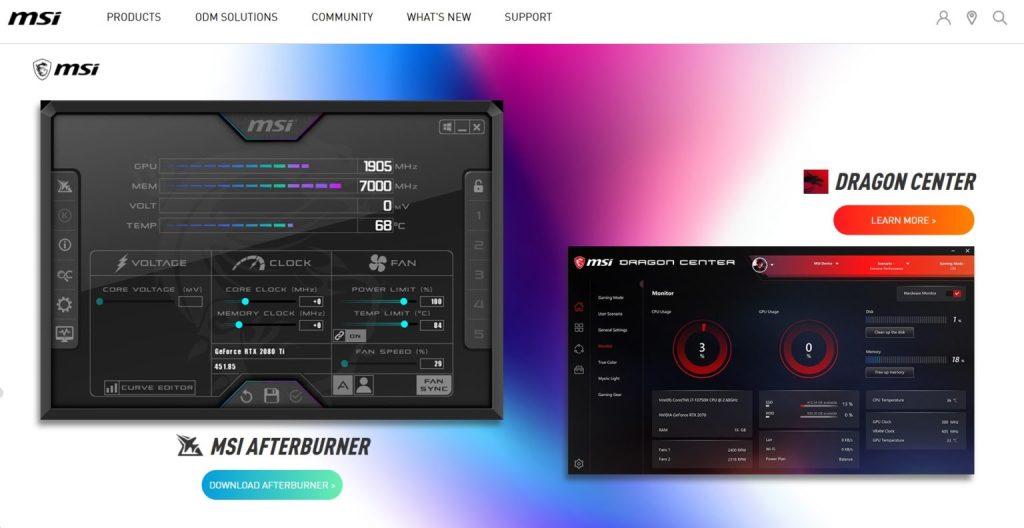
Ever feel like your computer’s chugging along slower than usual? Maybe one part is working overtime while others are chilling out. That’s called a bottleneck, and figuring it out can be a pain.
Well, fret no more! MSI Afterburner is a free tool that acts like a detective for your PC. It can monitor how hard your components, like the CPU, graphics card, and RAM, are working.
The cool thing is, MSI Afterburner works for pretty much any computer, even if you don’t have MSI parts.
While this section doesn’t explain how to use Afterburner to find bottlenecks yet, we’ll get to that detective work in a bit! For now, just know that Afterburner can be your secret weapon to identifying bottlenecks and getting your PC running smoothly again.
HWiNFO
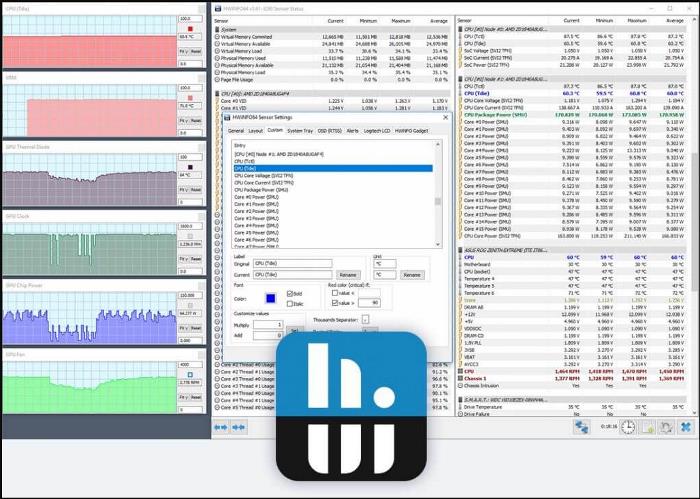
Just like MSI Afterburner, HWiNFO is another superstar tool that helps you monitor your PC’s health. Think of it like a fitness tracker for your computer!
HWiNFO keeps an eye on how hard all your components, like the CPU, graphics card, and RAM, are working. This way, you can easily see if one part is struggling to keep up with the others, which could be a sign of a bottleneck (remember, that’s like a traffic jam inside your computer).
The best part? HWiNFO gives you tons of detailed stats, so you can pinpoint exactly which piece of hardware might be slowing things down. No more mystery bottlenecks – HWiNFO helps you identify the culprit and get your PC running smoothly again!
Task Manager
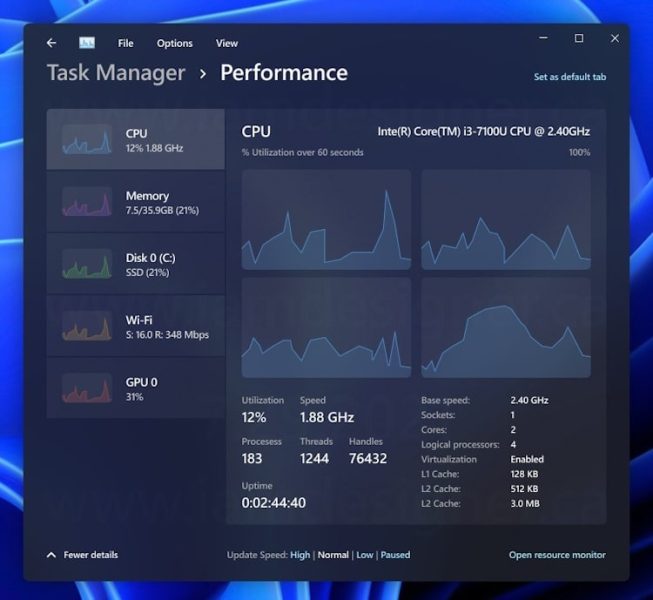
Think of Task Manager as a simple performance monitor. It shows you how hard your computer’s working, including the CPU, RAM, GPU, and even the disk. If one of these areas is constantly maxed out while others are chilling out, that could be a sign of a bottleneck.
While Task Manager on Windows 10 might have been a bit basic, the good news is that Windows 11 gives you even more detailed information. This makes it easier to identify which specific process or component might be causing a bottleneck and slowing things down.
So, before you download anything new, check out your Task Manager! It might be all you need to find the bottleneck culprit and get your PC running smoothly again.
Leave a Reply